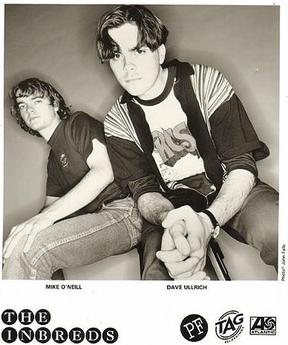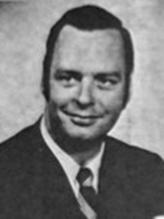Indigenous music of Canada encompasses a wide variety of musical genres created by Aboriginal Canadians. Before European settlers came to what is now Canada, the region was occupied by many First Nations, including the West Coast Salish and Haida, the centrally located Iroquois, Blackfoot and Huron, the Dene to the North, and the Innu and Mi'kmaq in the East and the Cree in the North. Each of the indigenous communities had their own unique musical traditions. Chanting – singing is widely popular and most use a variety of musical instruments.

Glass Tiger is a Canadian rock band from Newmarket, Ontario that formed in 1983. The band has released five studio albums. Its 1986 debut album, The Thin Red Line, went quadruple platinum in Canada and gold in the United States. Two singles from that album, "Don't Forget Me " and "Someday", reached the U.S. Top 10.

Kashtin were a Canadian folk rock duo in the 1980s and 1990s, one of the most commercially successful and famous musical groups in First Nations history.

The Inbreds were a Canadian alternative rock band formed in 1992. Originally from Kingston, Ontario, the band relocated to Halifax, Nova Scotia in 1996 and remained based there until breaking up in 1998. The band was a duo, consisting of vocalist/bassist Mike O'Neill and drummer Dave Ullrich.
The Innu are among the First Nations of Canada. They have maintained a vibrant folk music culture, especially involving dance and percussion-based music. Philip Mackenzie is an especially important modern musician, known for being the creator a kind of singer-songwriter tradition using the Innu language. Though he originally used only guitar and teueikan, subsequent performers in his folk Innu style have added electronic and acoustic instruments.

Robert Murray Gordon McConnell was a Canadian jazz trombonist, composer, and arranger. McConnell is best known for establishing and leading the big band The Boss Brass, which he directed from 1967 to 1999.

Florent Vollant is a Canadian singer-songwriter. An Innu from Maliotenam, Quebec, he was half of the popular folk music duo Kashtin, one of the most significant musical groups in First Nations history. He has subsequently released four solo albums.
Claude McKenzie is a Canadian singer-songwriter. An Innu from Maliotenam, he was half of the popular folk music duo Kashtin, the most commercially successful musical group in First Nations history.

Daniel Bélanger is a Canadian singer-songwriter. His music is eclectic, inspired by alternative rock, folk, and electronic music, sometimes humorous, sometimes wistful.
The Juno Award for "Contemporary Christian/Gospel Album of the Year" has been awarded since 1998, as recognition each year for the best Christian/Gospel music album in Canada. A separate organization, the Gospel Music Association of Canada, hands out a full array of awards for Canadian Contemporary Christian/Gospel music, covering a wide range of genres, each year with the annual Covenant Awards.

William Lawrence Dunn was a Canadian singer-songwriter, film director and politician. Born in Montreal, he was of mixed Mi'kmaq and Scottish/Irish background. Dunn often highlighted indigenous issues in his work.
The Juno Awards from 1992, were awarded on 29th of March in Toronto at a ceremony in the O'Keefe Centre. Rick Moranis was the host for the ceremonies, which were broadcast on CBC Television from 9 pm Eastern.
The Juno Awards of 1995 was an awards show representing Canadian music industry achievements of the previous year. It took place on 26 March 1995 in Hamilton, Ontario at a ceremony in the Copps Coliseum. Mary Walsh, Rick Mercer and other regulars of the television series This Hour Has 22 Minutes were the hosts for the ceremonies, which were broadcast on CBC Television. Almost 10,000 people were in attendance, and over 6,500 public tickets were sold. It was the first time the Awards event was open to the public.

Elisapie Isaac is a Canadian Inuk musician, broadcaster, documentary filmmaker, activist, and actress. She spent her childhood in Salluit, Nunavik, Quebec, and moved to Montreal in 1999 to pursue communication studies in order to become a journalist.

Kashtin is the debut album by Canadian folk rock duo Kashtin, released in 1989. The album featured the hit singles "Tshinanu" and "E Uassiuian".

Akua Tuta is the third album by Canadian folk rock duo Kashtin, released in 1994. Akua Tuta was the final album released by the band under the name Kashtin, although band members Claude McKenzie and Florent Vollant have each continued to record as solo artists.
The Juno Award for Best Roots and Traditional Album was an annual award category, presented by the Juno Awards from 1989 to 1995 to honour achievements in roots music.
Shauit is a Canadian singer-songwriter, who blends traditional First Nations music, primarily in the Innu-aimun language, with pop-rock and reggae music.
Jackson Delta are a Canadian blues musical group from Peterborough, Ontario. They are two-time Juno Award nominees for Best Roots and Traditional Album, receiving nods at the Juno Awards of 1991 for Acoustic Blues and at the Juno Awards of 1993 for I Was Just Thinking That.
The Innu are an ethnic group of Canada.









